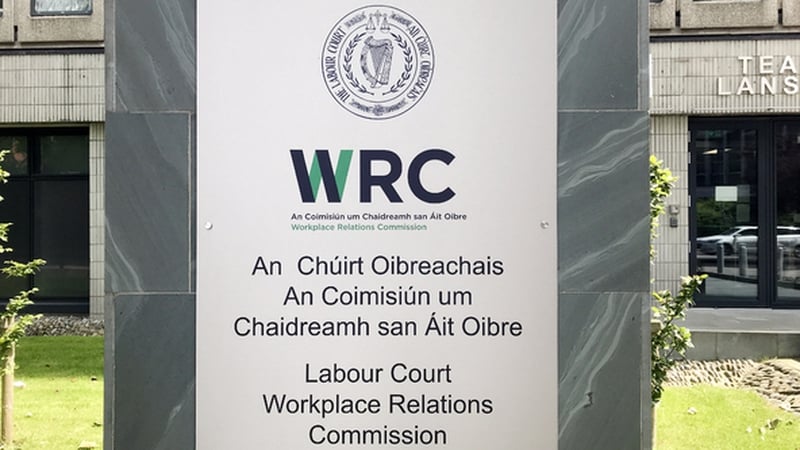Talks on a new public sector pay deal involving unions, staff associations and the Government have been adjourned with the sides expected to meet again later this week.
The negotiations began at the Workplace Relations Commission (WRC) this afternoon and concluded after about three hours.
Unions want the talks to include discussions around the removal of emergency industrial relations legislation introduced during the financial crisis.
They believe the legislation has given the Department of Public Expenditure too much power when it comes to industrial disputes and has made it difficult for individual sectors and grades to have issues addressed outside of the scope of existing pay deals.
Leaving the talks this evening, the General Secretary of the Fórsa trade union Kevin Callinan said they had made it clear at today's opening session that they would not agree to a long-term, multi-annual pay deal unless the remaining emergency legislation is repealed.
"We have been very clear today that we are no longer in an emergency situation and it is simply untenable that we would continue to operate under emergency legislation as we go forward, so the ball is in their court," Mr Callinan said.
Unions have said that if the emergency legislation is not removed, they will focus on a short-term pay deal that addresses cost-of-living and labour market pressures.
"In general, most public servants have received pay increases over the last three years that equal about half the rate of inflation, we did a little better than that for the lower paid, so there is a long way to go," Mr Callinan said.
"Obviously the Government will say that they have introduced some measures across the economy and they need to be taken into account and that's fair enough but some of those are temporary and there is a shortfall over the last three years that will have to be addressed," he added.
The current public sector pay deal, Building Momentum, is due to expire at the end of the year.
If these talks are successful, it will mean a pay increase for 385,000 public servants including nurses, doctors, gardaí and teachers.
Arriving at the pay talks, Antoinette Cunningham, General Secretary of the Association of Garda Sergeants and Inspectors (AGSI) said the negotiations will be difficult.
"The job of An Garda Síochána for many is not an attractive career anymore and we have lots of issues that we need to raise here today," Ms Cunningham said.
"We think that the Government in recent times has failed An Garda Síochána and we have a lot of issues after last week as well," she added, in reference to the riots in Dublin on Thursday night.
The Minister for Public Expenditure Paschal Donohoe has said that the pay talks will be challenging but that he believes that there is scope for all parties to engage constructively towards an agreement.
He said that any pay deal must be fair to both public servants and the taxpayer and must be sustainable in the face of considerable global uncertainty.






